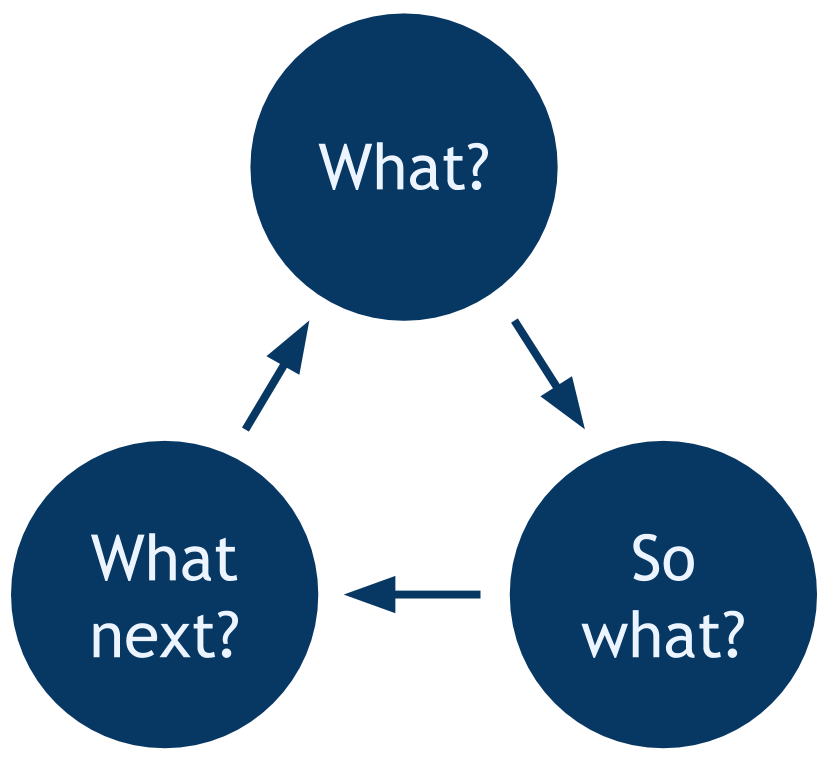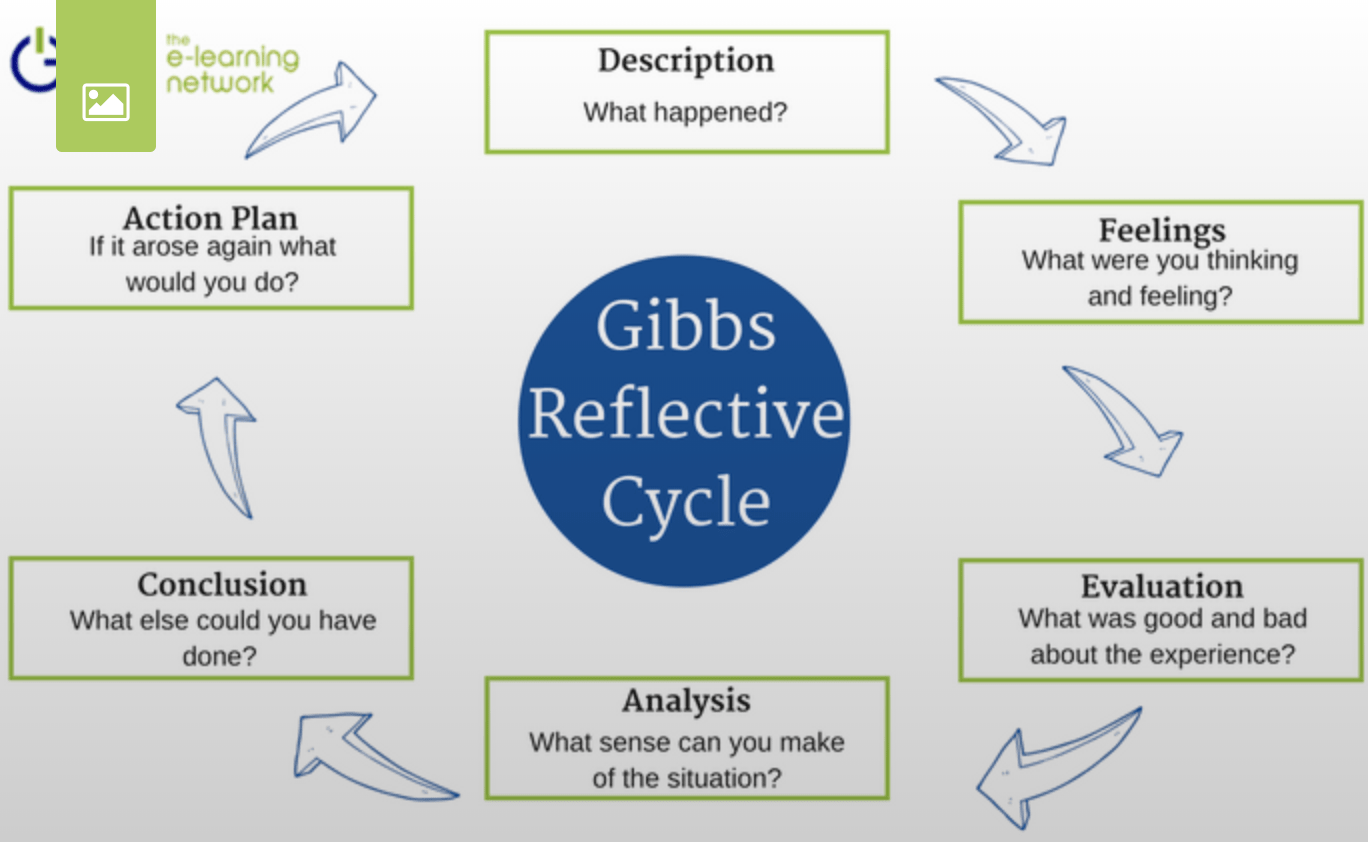Reflective practice is important for both students and qualified practitioners. Reflective practice allows a person to develop their critical and creative thinking skills which help with self awareness along with the understanding of others. Regular reflective practice supports a person to improve their personal and work progress along with ensuring that services delivered are client centered (Bolton 2010).
To read more about Reflective Practice click here!
Examples of reflective models that could be used to guide reflections:
Rolfe Reflective Model Guidance
Gibb’s Reflective Cycle
(The E-Learning Network)
Reflection Diary Template / Example |
|
| 1. Brief description of the learning activity or learning experience. | |
| 2. What feelings emerged for you before and after the learning activity or learning experience? | |
| 3. In evaluating the learning activity or learning experience, what was good and bad about it? | |
| 4. In analysing and making sense of the learning activity or learning experience, what choices did you make and what were its effects? | |
| 5. On reflection, what have I learned from the learning activity or learning experience? (skills, knowledge, professional attitudes, other) | |
| 6. How can this learning impact on my professional practice and the delivery of service to my service users? | |
| 7. Has this learning activity highlighted any areas for development and new learning needs for me? | |
| 8. My action plan resulting from this experience is:
|
|
References:
Bolton, G. (2010). Reflective practice: Writing and professional development. Sage publications.
M Ekelin, LJ Kvist, L Thies-Lagergren, EK Persson (2020) Clincial supervisors’ experieicnes of midwifery students’ reflective writing: a process for mutual professional growth. Reflective Practice. https://doi.org/10.1080/14623943.2020.1854211 read here

